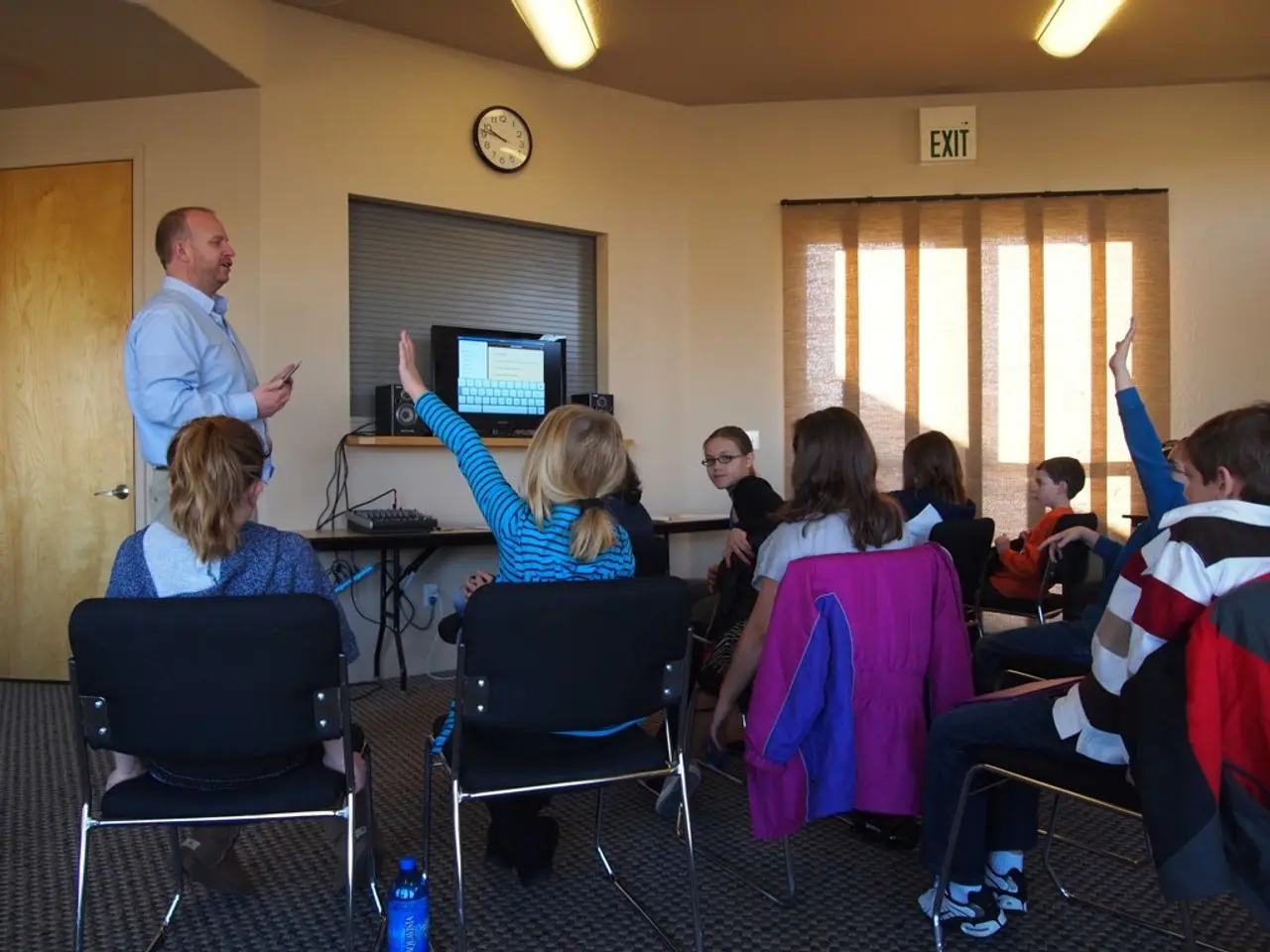Nurturing Empathy in Kids: Its Significance Explored
Empathy, a fundamental skill that makes relationships stronger and improves emotional intelligence, plays a crucial role in a child's development. From infancy to adulthood, empathy evolves from basic emotional responses to complex cognitive-emotional integration.
Infancy (0-2 years)
Empathy begins with emotional attunement to caregivers. In this stage, infants form secure attachments through emotional bonding, which fosters trust and a sense of safety essential for later empathy development. Infants respond to others’ distress with basic, instinctive comfort or distress, marking the beginning of empathy [2][4].
Early Childhood (2-6 years)
Children start developing both emotional and cognitive empathy. They begin to recognize and name emotions in themselves and others. Through social interactions, they learn cooperation, empathy, and conflict resolution. Empathy here involves understanding others' feelings and sometimes attempting comforting behaviors, although perspective-taking is still limited. Language and symbolic play support this growing awareness [1][2][3].
Middle Childhood (6-11 years)
Empathy becomes more sophisticated with cognitive growth. Children develop a "theory of mind," allowing them to understand others’ perspectives and emotions more accurately. Social experiences at school and with peers help children form mutual relationships, practice negotiation, and empathize with complex social cues. Emotional regulation improves, and peer acceptance becomes important, enhancing empathy-related social skills [2][4].
Adolescence (12-18 years)
Empathy deepens with advanced moral reasoning and identity exploration. Adolescents develop higher-order empathy, combining emotional and cognitive elements effectively to understand complex emotions and social dynamics. Puberty-related hormonal changes also impact emotional sensitivity and regulation. They seek autonomy but also form deeper emotional connections, showing empathy in more nuanced and abstract ways [2][4][5].
Adulthood
Empathy reaches a more mature form, integrating emotional literacy, self-expression, and mindful understanding of others’ experiences. Continuous social and emotional learning can refine empathy throughout life. Adults can consciously develop empathy through practice, such as mindfulness, empathy training, and active listening [1][5].
Key Milestones:
- Emotional contagion and attachment in infancy.
- Recognition and labeling of emotions in early childhood.
- Developing perspective-taking and negotiation skills in middle childhood.
- Advanced moral reasoning and identity formation in adolescence.
- Mature, differentiated empathy involving cognitive and emotional components in adulthood.
Factors Influencing Empathy Development:
- Quality of early caregiver attachment and emotional bonding [2][4].
- Social environment and peer interactions [2].
- Cognitive development and language skills enabling perspective-taking [2][3].
- Socio-emotional learning programs and emotional literacy education [1][5].
- Hormonal changes during adolescence affecting emotional regulation [5].
Modeling empathetic behavior, engaging in activities that foster caring and consideration for others, and teaching children to be empathetic are key strategies for nurturing empathy in children. Programs like Positive Action have shown a significant drop in bullying, highlighting the value of empathy. Reading together, playing, and talking about feelings are effective ways to help kids develop empathy, preparing them for life's challenges. By teaching empathy, we help kids grow into compassionate, resilient adults.
- The development of a child's empathy in infancy is initiated by emotional attunement to caregivers, which lays the groundwork for social skills such as forming secure attachments and recognizing others' distress signals.
- In early childhood, children's communication skills improve, enabling them to recognize and name emotions in themselves and others, leading to a rudimentary form of empathy that includes understanding others' feelings and sometimes attempts at comforting behavior.
- As children grow into middle childhood, they demonstrate emotional intelligence in the form of perspective-taking, which is crucial for understanding others' emotions more accurately and developing respectful friendships based on mutual understanding.
- In adulthood, empathy reaches its most advanced form, promoting equality among individuals through consistent and active listening, empathy training, and mindful understanding of others' experiences, thus laying a solid foundation for education and self-development.




